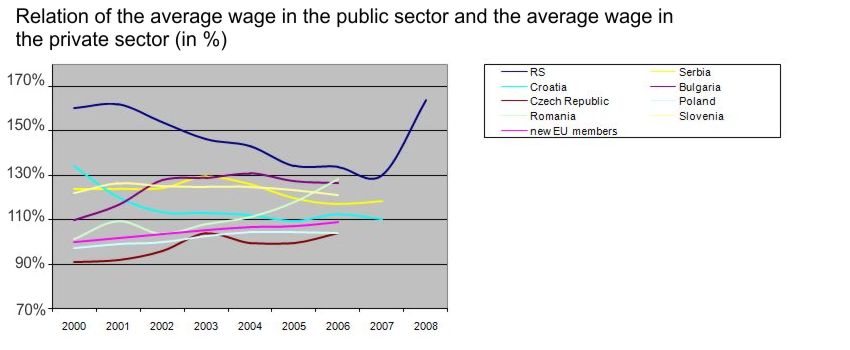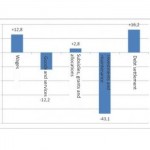
The Youth Business Forum was held for the third year as the closing event of the Student Entrepreneurship project implemented by Center for Research and Studies GEA. The project is supported by USAID, in partnership with the University of Sarajevo, University of Banja Luka, and University of Mostar.

In June, upon the recommendation of the Government of Republic of Srpska, the Law on a Special Contribution for Solidarity was adopted. The new law introduces an additional income tax contribution amounting to 3% of the net wage, intended to fund flood damage repairs.

At a conference entitled “The position of women and youth in the Bosnia and Herzegovina labor market,” Ms. Belma Hadzimahmutovic presented findings and recommendations from her co-authored GEA study “Youth unemployment – the EU and B&H share the problem, but can they share solutions?”

The announcement by the Government of the Republic of Srpska about increasing the monthly wages of employees in public institutions to restore their incomes to 2008 levels is not all that it may seem. Here GEA provides some context related to this decision.

Following the motto “Your success begins with your idea,” the Student Entrepreneurship project being implemented by the Center for Research and Studies GEA with support from USAID, is entering its third consecutive year.

The economic recession in recent years has had a devastating impact on young people in Bosnia and Herzegovina, with youth unemployment increasing two to three times more than the overall unemployment rate. A new GEA study explores possible solutions to this problem.

It is well-known that B&H’s 40% “tax wedge” – the amount of taxes and contributions on income – is relatively high when compared with that many countries. This means that for every 100 BAM that an employer pays for one registered worker, only 60 BAM goes to the worker.

The announcement by the Government of the Republic of Srpska on introducing tax-exempt wage portion of 200 BAM is surely a welcome measure…

The suggested Draft Budget of the city of Banja Luka for 2014 reveals major budget expenditure problems.

Analysis of progress implementing the RS 2011-2015 Employment Strategy.